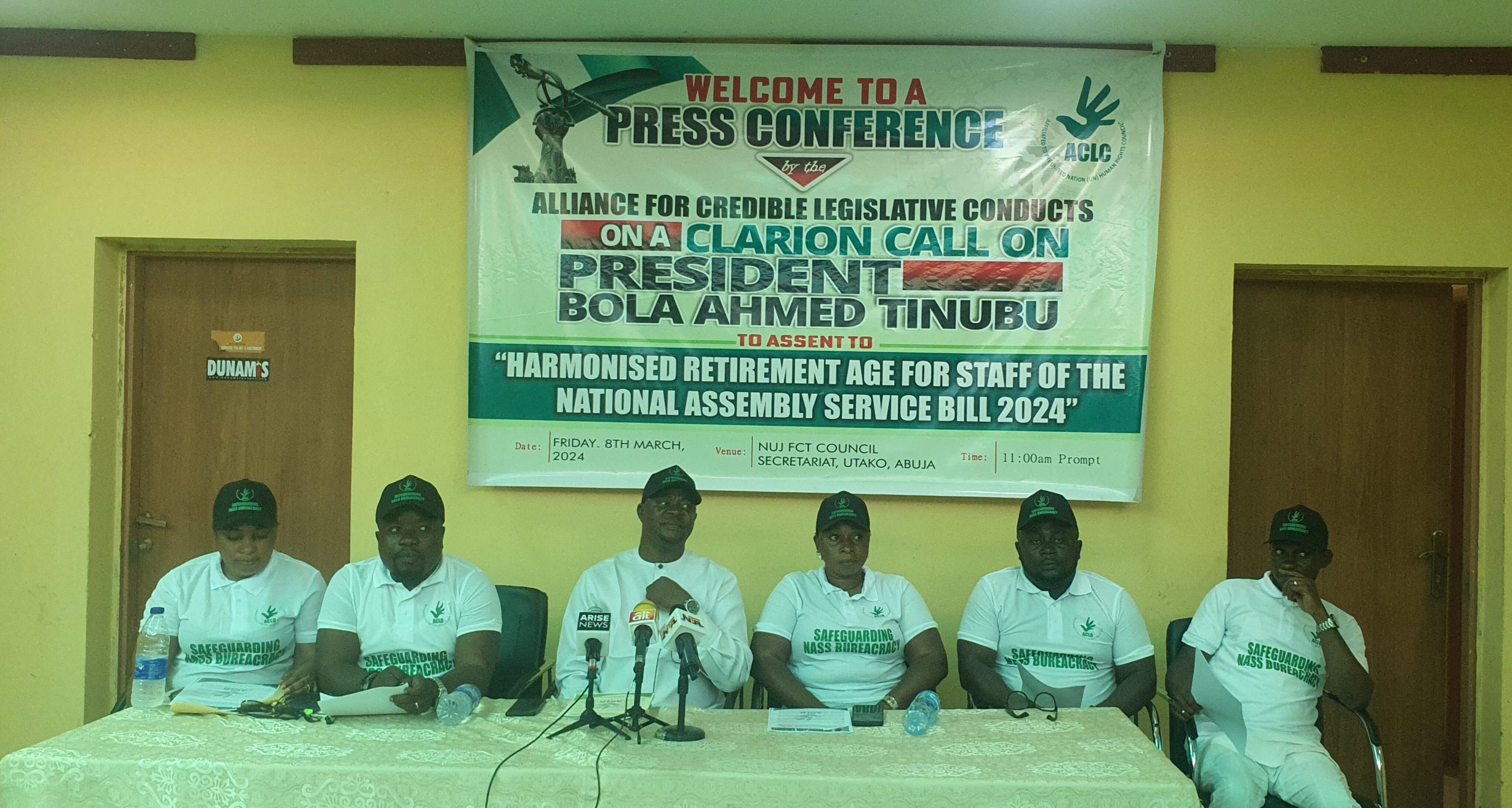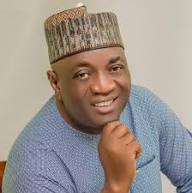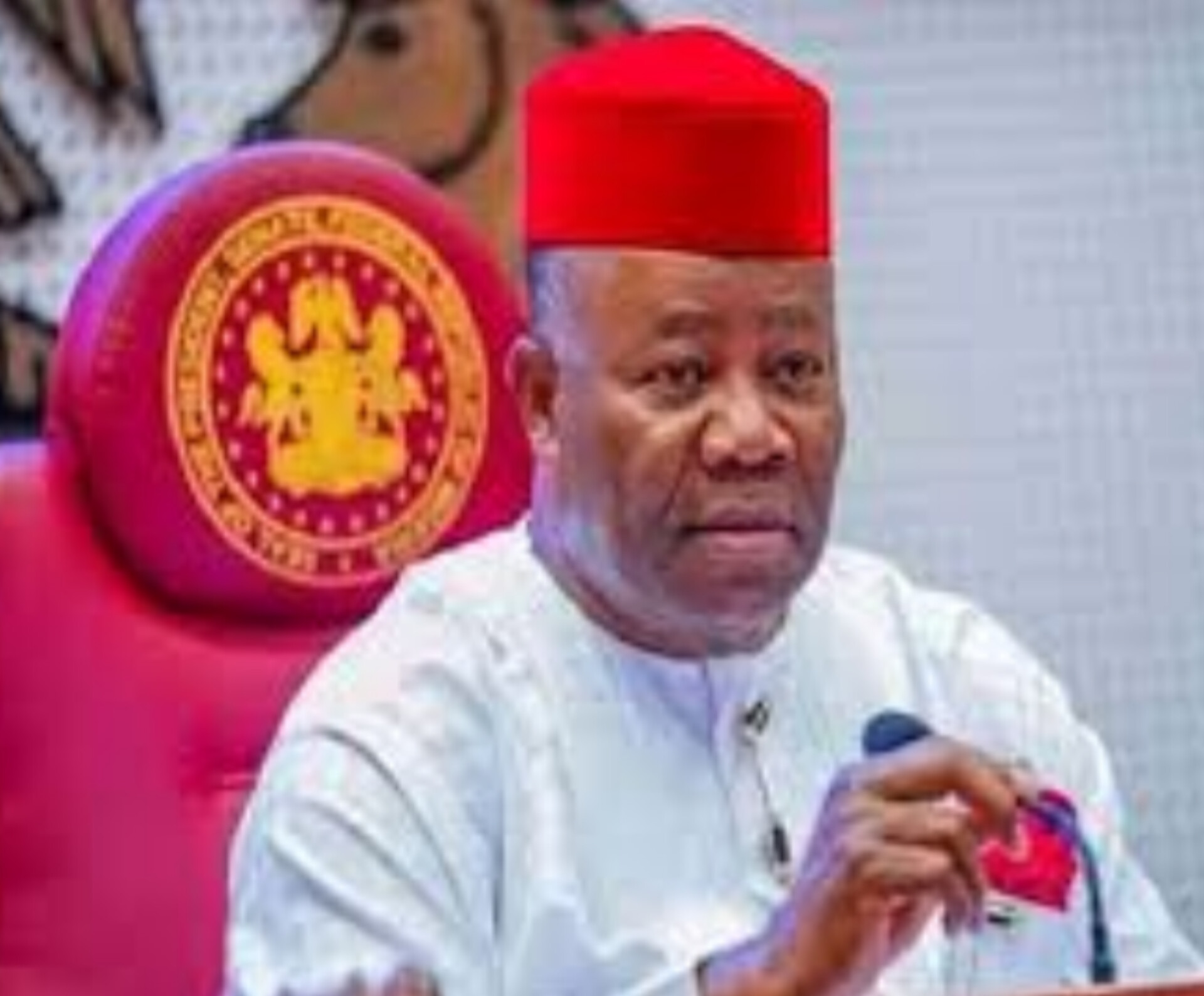A Civil Society Organization has enumerated reasons why it is expedient for President Bola Ahmed Tinubu to sign a Bill which effected an upward review in the retirement age of National Assembly staff into law.
The National Assembly recently passed a Bill which seeks to extend the retirement age of the National Assembly staff by 5years
The CSO, Alliance for Credible Legislative Conduct, at a Press briefing by its Chairman, Comrade Clement Afuye, indicated that assent to the Bill would help strengthen the National Assembly as an institution which is pivotal to the success of any democracy.
According to him, despite misconceptions about the Bill, the Senate and House of Representatives had acted patriotically by passing a critical legislation to address the manpower needs of the legislature.
The group said it had become imperative to call on patriotic Nigerians and President Bola Tinubu to join hands to defend the nation’s topmost legislative institution from “powerful vested interests and predators.”

Afuye said: “Considering the enormous work inherent within the Parliamentary system, especially when compared to advanced democracies and the competencies and experience required to perform arduous legislative tasks, adding extra five years to the tenure of staff of the National Assembly will never exacerbate unemployment situation in the country; it will rather stabilize the parliament, deepen its procedures and practices and increase its capacity to deliver for the good our democracy and country.
“The added years, in our view, would help reduce cost, curb brain drain, retain critical mass of competent and experienced staff and ensure optimum productivity and effectiveness of the National Assembly’s bureaucracy.
“It is based on the strength of the above that we passionately use this medium to call on President Bola Ahmed Tinubu, a former Senator of the Federal Republic of Nigeria, to append his signature to this Bill.
“Signing the Bill will be an added cap on his reforms efforts and a testament to his progressive and effective leadership style aimed at repositioning the nation’s economy and democracy as a critical member of the global community.”
The group added: “For the avoidance of doubt, the Legislature as the only symbol of democracy in Nigeria is still evolving and trying to develop its practices and procedures compared to the other two Arms of Government.
“Let us recall that since 1979, when Nigeria had its transition from parliamentary to presidential system of government, the bureaucratic structure of the National Assembly has since been evolving and struggling to stabilize in the face of competing challenges.
“Another setback was the Intermittent military interference in governance and suppression of the legislature during the reign of the military governments and the National Assembly had to contend with such debilitating scenario for decades.
“It may interest you to note that until the return of democracy in 1999, and the creation of National Assembly Service Commission (NASC) in year 2000, the National Assembly’s bureaucracy was not fully independent.
“At this juncture, we want to make it very clear that, whatever will make the National Assembly to operate to its fullest statutory capacity in tandem with other parliamentary democracies globally cannot be silenced or truncated by any selfish group or individuals…”




